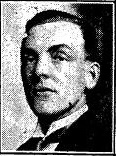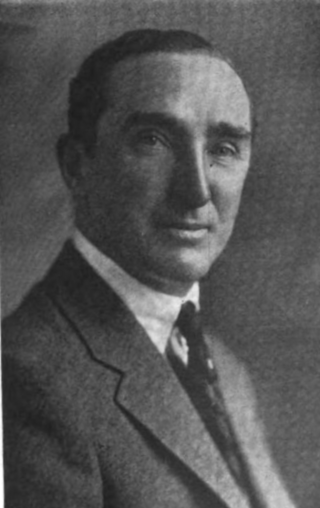Related Research Articles
Agrarianism is a social and political philosophy that advocates for a return to subsistence agriculture, family farming, widespread property ownership, and political decentralization. Those who adhere to agrarianism tend to value traditional forms of local community over urban modernity. Agrarian political parties sometimes aim to support the rights and sustainability of small farmers and poor peasants against the wealthy in society.
Bicameralism is a type of legislature that is divided into two separate assemblies, chambers, or houses, known as a bicameral legislature. Bicameralism is distinguished from unicameralism, in which all members deliberate and vote as a single group. As of 2022, roughly 40% of the world's national legislatures are bicameral, while unicameralism represents 60% nationally and much more at the subnational level.

Sir James Edward Thornton Paice, DL is a British politician who was the Member of Parliament (MP) for South East Cambridgeshire from 1987 to 2015, when he declined to run for reelection and retired from politics. A member of the Conservative Party, he served as Minister of State at the Department for Environment, Food and Rural Affairs from 2010 until being removed in a government reshuffle in 2012. Following his service in government, Paice was knighted in September 2012.
The National Farmers' Union (NFU) is an employer association representing farming and growing businesses within England and Wales.

The first modern Farmer–Labor Party in the United States emerged in Minnesota in 1918. The American entry into World War I caused agricultural prices and workers' wages to fall, while retail prices rose sharply during the war years. Consequently, farmers and workers made common cause in the political sphere to redress their grievances.

Gainsborough is a constituency in Lincolnshire represented in the House of Commons of the UK Parliament since 1983 by Sir Edward Leigh of the Conservative Party, who, since the 2024 general election, is the Father of the House.

Sir Horace Curzon Plunkett, was an Anglo-Irish agricultural reformer, pioneer of agricultural cooperatives, Unionist MP, supporter of Home Rule, Irish Senator and author.

The Parliament of Romania is the national bicameral legislature of Romania, consisting of the Chamber of Deputies and the Senate. It meets at the Palace of the Parliament in Bucharest, the capital.
The Farmers' Party was a Dutch agrarian political party, with a strong conservative outlook and a populist appeal. The BP was the first anti-establishment party elected into the Dutch House of Representatives after the Second World War.

The 1942 Maldon by-election was a parliamentary by-election held on 25 June 1942 for the British House of Commons constituency of Maldon in Essex. It was one a series of by-elections in World War II won by radical independent candidates.

Sir James Henderson-Stewart, 1st Baronet, born James Henderson Stewart, was a British banker, Army officer and politician. He was a National Liberal Member of Parliament for East Fife from 1933 until his death, and was the sessional chairman of the Parliamentary Party in 1945. He played an important role in negotiating the unity of the National Liberals with the Conservatives, but was unable to persuade the Liberal Party to join as well.
The 1932 Henley by-election was a parliamentary by-election held on 25 February 1932 for the House of Commons constituency of Henley.

Manning William Doherty was a farmer, businessman and politician serving as Ontario's Minister of Agriculture during the United Farmers of Ontario-Labour government of 1919 to 1923 and as leader of the Progressives in Opposition before leaving provincial politics.
The 1928 Lancaster by-election was a parliamentary by-election held in England for the House of Commons constituency of Lancaster on 9 February 1928.

Sir Mark Steven Spencer is a British politician who served as Minister of State for Food, Farming and Fisheries between 2022 and 2024. He previously served as Leader of the House of Commons and Lord President of the Council from February to September 2022 and as Chief Whip from 2019 to 2022. A member of the Conservative Party, he served as Member of Parliament (MP) for Sherwood from 2010 until 2024, when he lost his seat in the 2024 General election.
The 1939 Holderness by-election was a parliamentary by-election held on 15 February 1939 for the British House of Commons constituency of Holderness in the East Riding of Yorkshire.
The 1939 Brecon and Radnorshire by-election, was a parliamentary by-election held on 1 August 1939 for the British House of Commons constituency of Brecon and Radnorshire, in South Wales.
The 1937 Combined English Universities by-election was a parliamentary by-election for the British House of Commons dual member constituency of the Combined English Universities held on 22 March 1937.

Sir Alfred Herbert Henry Matthews was an English agriculturalist and politician.
The 1924 Prime Minister's Resignation Honours were awards announced on 8 February 1924 to mark the exit of Prime Minister Stanley Baldwin, who resigned his first term as prime minister in late January.
References
- ↑ "New Political Body to Represent Rural Interests" . Western Daily Press. 8 January 1924. Retrieved 19 February 2015.
- 1 2 Matthews, A.H.H. (1915). Fifty Years of Agricultural Politics: Being the History of the Central Chamber of Agriculture (First ed.). London: P.S. King & Son Ltd. pp. 340–348. Retrieved 19 February 2015.
- ↑ "An Agricultural Party in the Commons" . Cheltenham Chronicle. 9 November 1907. Retrieved 19 February 2015.
- ↑ "A Rural Party" . Aberdeen Journal. 12 October 1923. Retrieved 19 February 2015.
- ↑ "Rural Party Suggested" . Yorkshire Post and Leeds Intelligencer. 15 October 1923. Retrieved 19 February 2015.
- ↑ "A New Rural Party" . Yorkshire Evening Post. 8 January 1924. Retrieved 19 February 2015.
- 1 2 "The Rural Party: Important New Factor in Politics" . Western Morning News. 9 January 1924. Retrieved 19 February 2015.
- ↑ "New Rural Party: Sir H. Matthews Summarises its Programme" . Tamworth Herald. 19 January 1924. Retrieved 19 February 2015.
- ↑ "New Political Body to Watch Interests of Farmers and Labourers" . Biggleswade Chronicle. 18 January 1924. Retrieved 20 February 2015.
- ↑ "No Rural Party in Politics: Mr Robbins's Advice to Devon Farmers" . Western Morning News. 12 January 1924. Retrieved 19 February 2015.